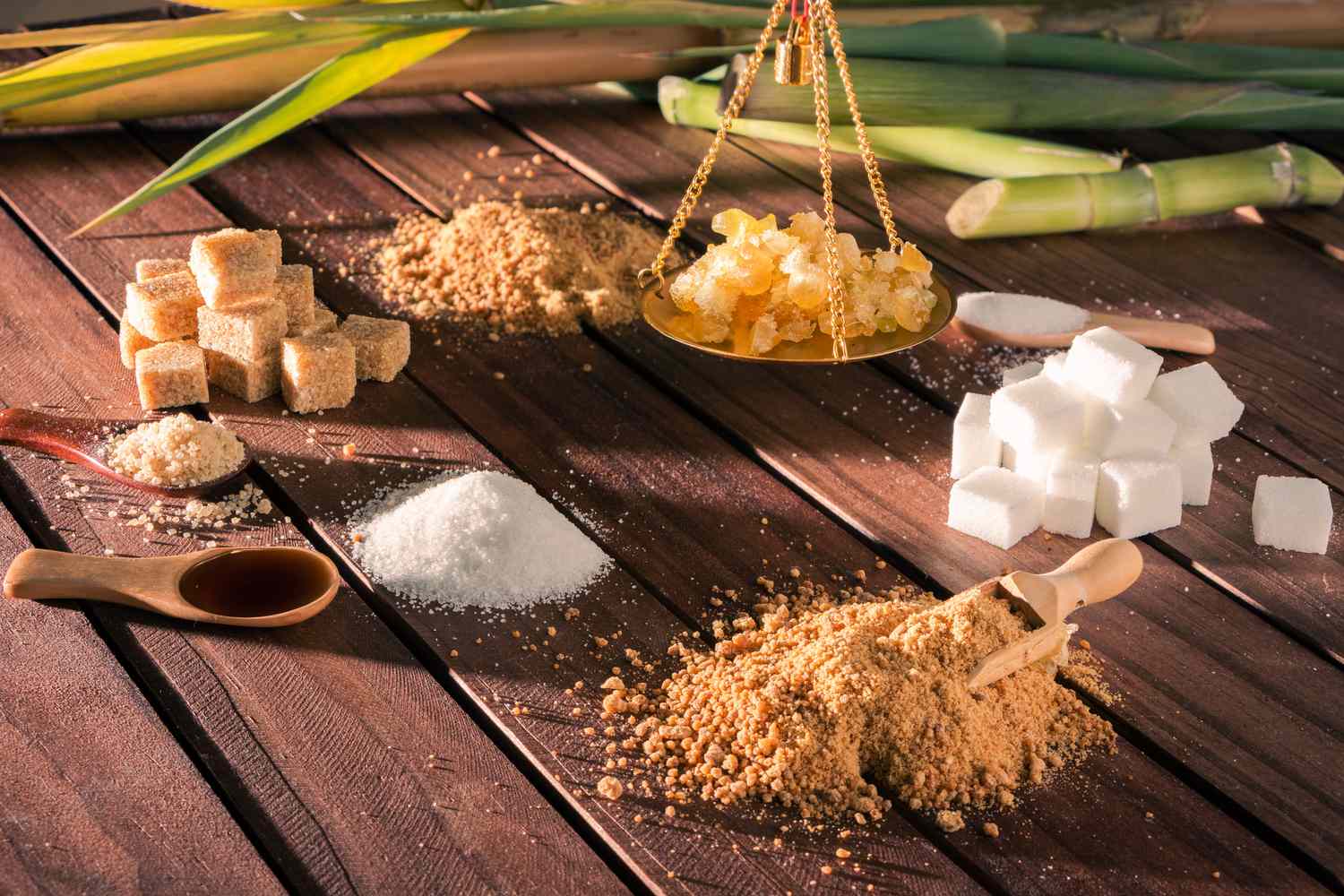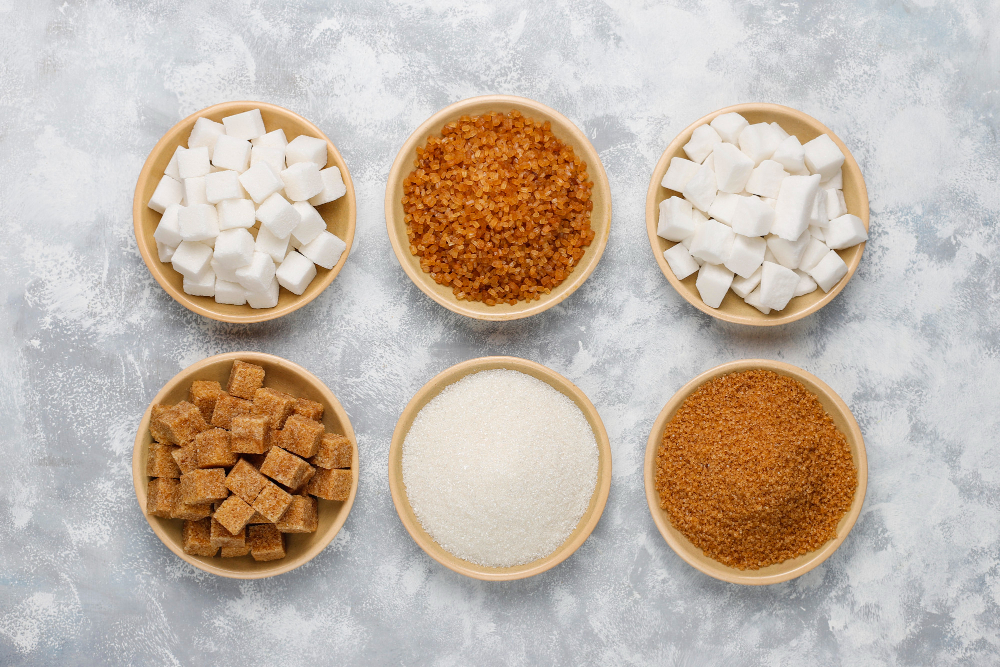Sugar. It’s in your morning coffee, your favorite snacks, and even some foods you’d never suspect. But not all sugar is created equal. Have you ever wondered what separates the sugar found in a juicy apple from the kind stirred into your soda? Understanding the difference between natural and added sugars isn’t just a quirky nutrition fact; it’s a key to making better choices for your health.
Natural sugars, like those in fruits and dairy, come packed with nutrients, fiber, and energy. Added sugars, on the other hand, sneak into your diet through processed foods and beverages, often leading to those dreaded sugar crashes and long-term health risks. With so many conflicting messages about sugar swirling around, it’s easy to feel lost in the noise.
This blog dives into the core differences between natural and added sugars, why they matter, and how they impact your body. By the end, you’ll be armed with simple, practical tips to cut through the confusion and make smarter decisions for a healthier future. Let’s unravel the sweet (and sometimes not-so-sweet) truth about sugar!
How Natural Sugars Support Your Health
Natural sugars, found in whole foods like fruits, vegetables, and dairy, are a healthy way to fuel your body. Unlike added sugars, natural sugars come bundled with essential nutrients that your body needs to function its best.

For example, fruits are packed with vitamins, like vitamin C, and antioxidants, which help boost your immune system. They’re also rich in fiber, which slows down sugar absorption, keeping your energy levels steady and helping you feel full longer. Dairy products, such as milk and yogurt, contain lactose, a natural sugar that provides energy while delivering calcium and protein for strong bones and muscles.
The fiber and nutrients in these whole foods balance the sugar content, making them a smart, healthy choice. Instead of causing quick spikes and crashes in your blood sugar, natural sugars offer sustained energy that supports your daily activities.
Next time your sweet tooth strikes, reach for an apple or a handful of berries. These naturally sweet options are a delicious way to fuel your body and keep your health on track!
The Hidden Risks of Added Sugars in Your Diet
Added sugars might taste good, but they can take a serious toll on your health. Found in processed foods, sodas, and sweet treats, these sugars offer no nutritional value and can lead to a host of problems when consumed in excess.
One major risk is weight gain. Added sugars are packed with empty calories that can make it easy to overeat without feeling full. They also cause sharp blood sugar spikes, followed by crashes that leave you feeling tired and craving more sugar. Over time, this cycle can disrupt your metabolism and contribute to higher risks of obesity and energy imbalances.
Excessive intake of added sugars is linked to long-term health issues like type 2 diabetes, heart disease, and liver problems. It can also inflame your body, impacting overall well-being.
The good news? Cutting back on added sugars doesn’t mean sacrificing taste. Opt for naturally sweet foods like fruit or use spices such as cinnamon to enhance flavors. Small swaps can make a big difference and protect your health in the long run.
Common Foods That Contain Added Sugars
Added sugars sneak into more foods than you might expect. While cakes, cookies, and sodas are obvious culprits, many everyday items can be surprisingly high in hidden sugars.
Beverages like sweetened teas, flavored coffees, energy drinks, and fruit juices often contain more sugar than you’d guess. For example, a single soda can have as much added sugar as the daily recommended limit. Condiments such as ketchup, barbecue sauce, and salad dressings also pack in extra sweetness, turning an innocent drizzle into a sugar overload.

Even foods marketed as “healthy” can be a sugar trap. Flavored yogurts, granola bars, and cereals frequently contain as much sugar as a dessert. And don’t overlook packaged snacks like crackers and bread, which sometimes use sugar to enhance flavor.
The best way to spot added sugars? Check food labels for terms like “high fructose corn syrup,” “sucrose,” or “cane sugar.” With this knowledge, you can make smarter choices and keep those sneaky sugars under control.
Are All Natural Sugars Healthy?
Natural sugars, like those found in fruits, vegetables, and dairy products, are healthier than added sugars—but it’s important to consume them in moderation. They come packaged with essential nutrients like vitamins, minerals, and fiber, which help your body process sugar more effectively and keep you feeling full. However, not all sources of natural sugar are equal.
For instance, drinking fruit juice may seem like a healthy choice, but many juices lack the fiber found in whole fruit, leading to quicker sugar absorption and potential blood sugar spikes. Similarly, dried fruits are loaded with natural sugars in a concentrated form. While they’re nutrient-rich, eating large portions can add up quickly in calories and sugar.
It’s all about balance. Whole fruits and vegetables, with their natural fiber and nutrients, are generally the healthiest way to enjoy natural sugar. To avoid overdoing it, aim for variety and proper portions in your diet. Remember, even the “good” sugars should fit into a well-rounded, mindful approach to eating!
Can You Have Too Much Natural Sugar?
Natural sugars are a healthier choice than added sugars, but moderation is still key. Consuming too much natural sugar, even from nutrient-rich sources like fruits or dairy, can lead to unwanted health issues. For example, eating several servings of fruit in one sitting or sipping on large quantities of fruit juice can result in excessive sugar intake. This may cause blood sugar spikes, energy crashes, or even weight gain over time.
One common issue is the lack of fiber in certain forms of natural sugar, such as fruit juice, which allows the sugar to enter your bloodstream quickly. Similarly, dried fruits, while packed with nutrients, are often highly concentrated in sugar and easy to overeat.
The best approach is to enjoy natural sugars within a balanced diet. For instance, pair fruits with protein or healthy fats to stabilize blood sugar levels. Be mindful of portion sizes and aim for whole food options as much as possible. This way, you can enjoy the benefits of natural sugars without overdoing it.
Wrap-Up
Balancing your sugar intake is essential for a healthy lifestyle. Natural sugars from whole foods like fruits and vegetables provide energy and nutrients, but even these should be enjoyed in moderation. Watch out for hidden added sugars in everyday items and opt for whole, fiber-rich options to keep your diet on track. Being mindful of portion sizes and reading labels can make a big difference. Share this post, and start making smarter choices for a healthier, happier you!


